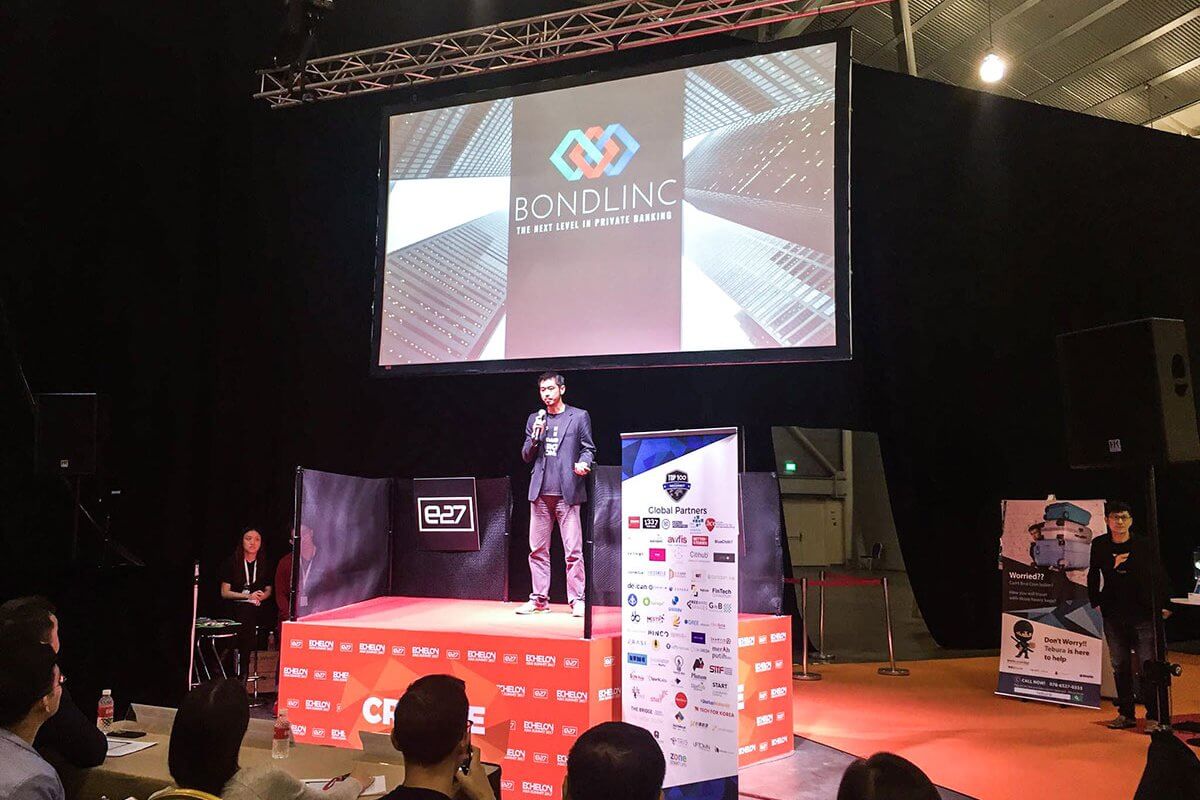By the SMU Social Media Team
There is plenty of talk about how fintech (financial technology) could disrupt the industry by employing technology and innovation like roboadvisory software in areas where traditional methods have held sway. However, there are many exciting new startups that have been set up to complement mainstream banking infrastructures, and not compete with institutional stalwarts.
We speak to former bond trader Eng Keong (EK) Ong, the founder of one such startup—bond trading platform Bondlinc—to understand how fintech products are boosting banking systems instead of threatening to replace banks or their staff.
How big is fintech’s impact on the local banking sector?
EK: Initially, fintech startups were more aggressive and positioned themselves to be competitors of banks. Then, banks aggressively began hiring and building a costly in-house system to fight back. However, the banks now realise they cannot innovate as fast as smaller and more nimble companies. So, the current lot of fintech firms are often helmed by ex-banking personnel who have come out to fix micro issues which they encountered when they were working in banks.
The biggest growth areas are where fintech companies can provide solutions to internal processes that are time-consuming, repetitive and manpower-intensive. For example, streamlining the initial interaction with the customer (known as “onboarding”), standardising payments protocols, and aiding in time-consuming compliance protocols.

What are the advantages of embracing fintech?
EK: Fintech firms are almost always nimbler than the finance industry as they focus on a specific area of improvement, and there are a lot of areas which need improvement.
Banks are not able to fix all the problems they encounter, simply because banks are meant to provide banking services, not IT services. Fintech firms constantly look at the problems they are fixing, and keep them fixed—something which the banks will not be able to do.
What are the disadvantages?
EK: Being highly regulated entities, banks have a large responsibility to keep their clients’ personal information and well-being safe. That is probably their single biggest concern apart from providing consistent daily banking services.
By working with fintech, they have to ensure that the companies they work with do not threaten or breach these concerns. Working with banks tends to be a slow and protracted process due to the many layers of approval required for every part of a project to be accepted and approved by all the relevant stakeholders.
Is fintech to be feared? Do you believe it could replace banks, human analysts and other current manpower in the finance industry?
EK: Realistically, fintech will never replace banks completely. It can play a big role in making banks a lot more efficient. That said, fintech will definitely replace a lot of the menial tasks which are currently done by humans, in the same way new technology changes every other industry when it is introduced.
Fintech aims to improve existing processes and by doing so, frees up time for people to do more value-added jobs. Take the humble office printer—if there were no printer technology, humans would have to type everything out?
The key is to identify what and where most of the pain points come from and allow fintech solutions to complement existing processes.
You’ve mentioned that Bondlinc’s platform was established with the intention to help bond traders, not replace them. How did the business idea come about?
EK: My business partner, Daniel Yu, and I are both bond practitioners. We realised that bond trading, although being the largest tradeable asset class in the world, has not evolved in the past 30 years and still could not be traded electronically online, unlike foreign exchange and equity. So, along with my other co-founder, Vincent Caldeira, we looked at creating a solution that could be adopted across the different banks.
What are some challenges you’ve faced so far as a fintech company?
EK: We are predominantly a B2B business, and dealing with institutions is often slow, requiring layers of understanding by different stakeholders, agreements and negotiations.
On the tech side, we have to be compliant in working with banks; and bringing a new technology into a bank is a tedious process as we have to explain at length our business and tech stack to the different IT teams.
As we are somewhat disruptive, senior management and people on the ground who would be affected have been a little sceptical about our product.









